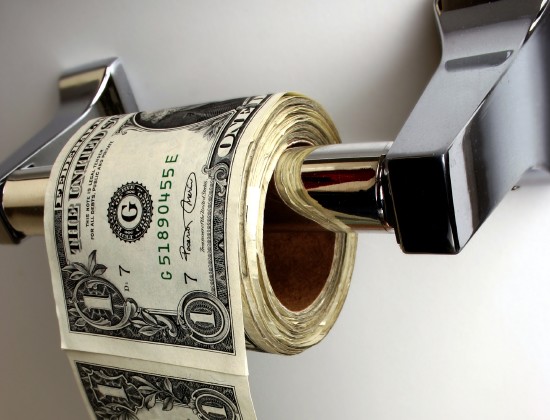 When I was younger, I never understood stories of my grandfather continuing to enjoy watercress and onion sandwiches or a timeless goose-grease sandwich long after the depression was over. But now as more and more people are inventing ways to save money, that are quite resourceful, I can’t help but think that maybe these practices are just common sense ways to conserve, that we may overlook during times of plenty. And I am enjoying that these methods are making the news more and more because I get to admire how people stretch a penny, and am constantly entertained by those who attempt to cut the penny in half, paint it silver and get 20 cents out of it.
When I was younger, I never understood stories of my grandfather continuing to enjoy watercress and onion sandwiches or a timeless goose-grease sandwich long after the depression was over. But now as more and more people are inventing ways to save money, that are quite resourceful, I can’t help but think that maybe these practices are just common sense ways to conserve, that we may overlook during times of plenty. And I am enjoying that these methods are making the news more and more because I get to admire how people stretch a penny, and am constantly entertained by those who attempt to cut the penny in half, paint it silver and get 20 cents out of it.Much of the advice for saving money is still common knowledge. Don’t spend too much. Know your cost of living. Organize receipts. Make shopping lists and adhere to them. Budget your money by listing how much you want to spend each month and compare that to how much you do spend to know where to cut back.
Some ideas start to push the limits of intuition. Like, if your bar of soap is getting really small, instead of throwing it away, you can stick it to a new bar of soap. And voila! Fewer trips to the store to buy more soap because you use each bar to the end. One site I found recommended saving your junk mail and making note pads out of the paper you would have otherwise thrown away.

Conserving is not the only way to save money. There are accounts of a woman who whitened her teeth, a process that can cost a lot of money, for free just by using free trial after free trial of long term whitening methods. And depending on how readily you can print coupons (perhaps on the back of some saved junk mail?), you can always go to fastfoodcoupon.com to get exactly what the name advertises. They have an entire page of their website devoted to links for Kentucky Fried Chicken.
However it is possible to take it too far. Recently, authorities have reported a spike in auto fraud like they’ve never seen before. In hopes of collecting insurance money, car owners have taken radical measures. “SUV’s have been found ablaze in the Nevada desert, cars have been dumped in a Miami canal and a BMW was discovered buried in a field in Texas. Some vehicles have been parked in the path of a hurricane.”

These practices are instantly flagged as suspicious, prompting further investigation and several arrests. “The New York Alliance Against Insurance Fraud says the number of people arrested statewide on suspicion of making false auto theft reports jumped from 96 in 2007 to 130 in 2008.” And in Dallas County it is estimated those reports have increased another 12% this year. (i recommend reading the full article here...)
So, by all means, cut the toothpaste tube when it gets to the end (evidently there’s another week’s worth of dentifrice in there. All you have to do is squeeze!). And I won’t judge if your 2009 planner is made of AOL leaflets and the envelopes to the sweepstakes you may or may not be in the running for. But if you’re planning on burying your Mercedes Benz, or torching your 1995 Camry, I say, don’t do it! Or at least make sure you've turned off all the lights at home and shut your leaky faucets. You’ll need money to pay your fine.
Read more!










